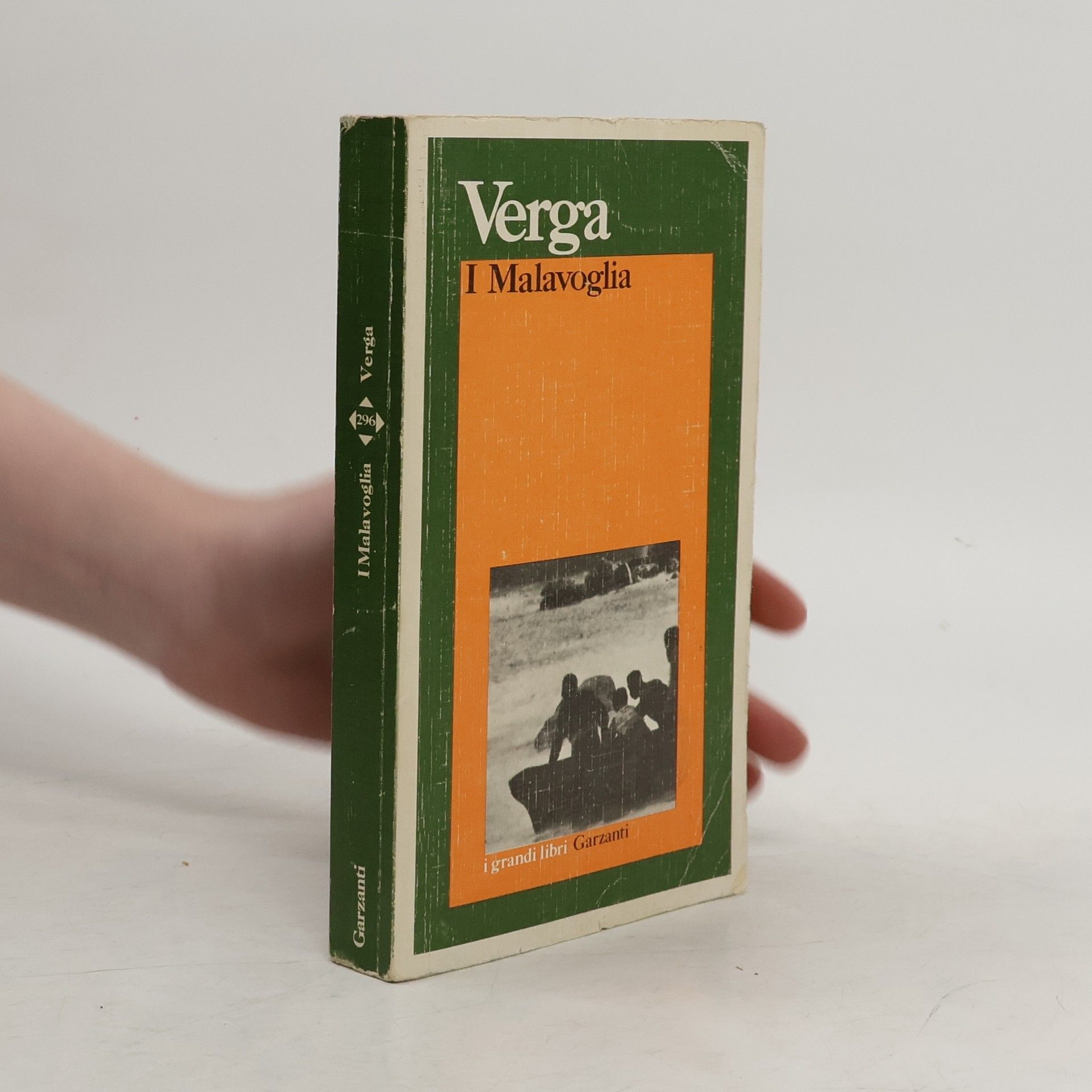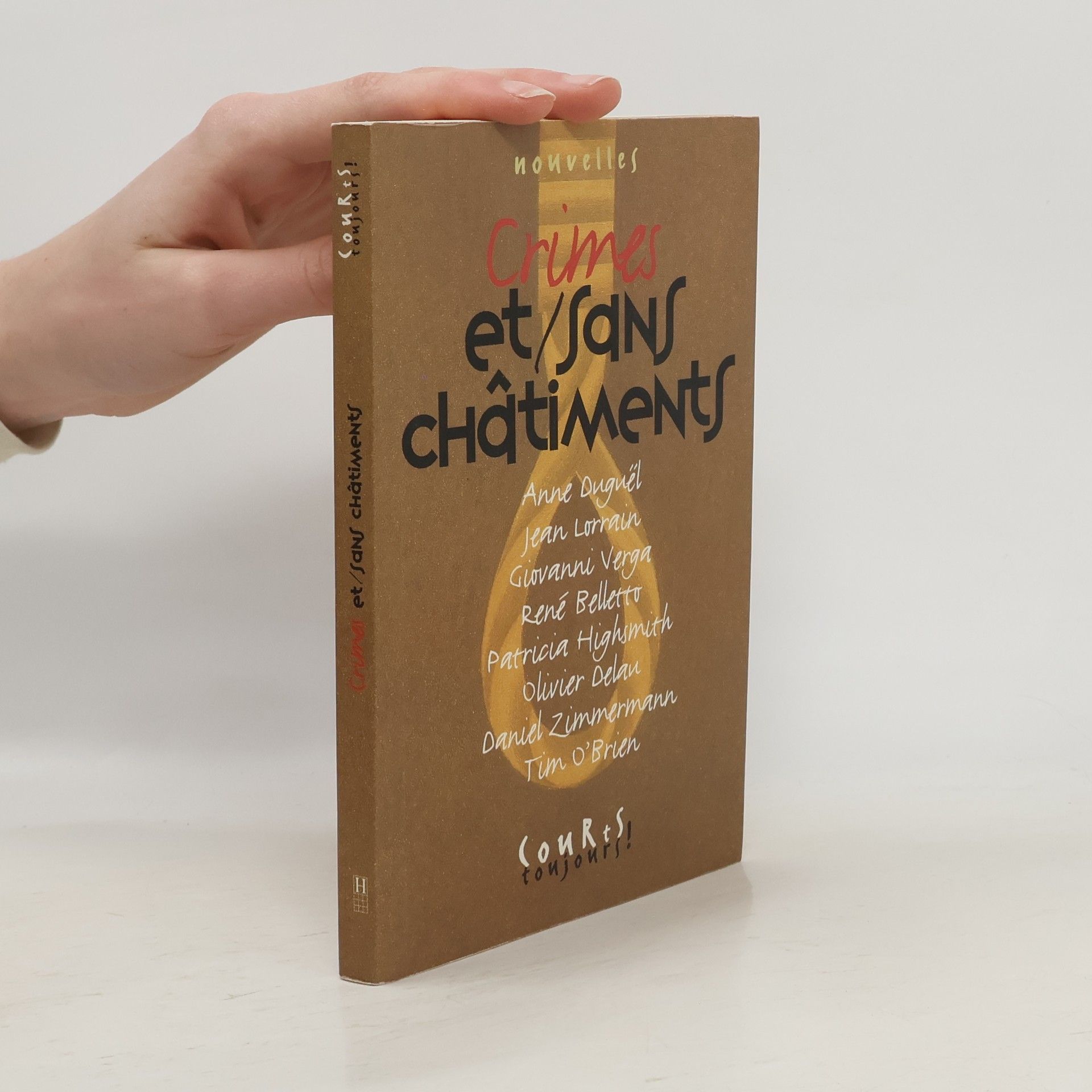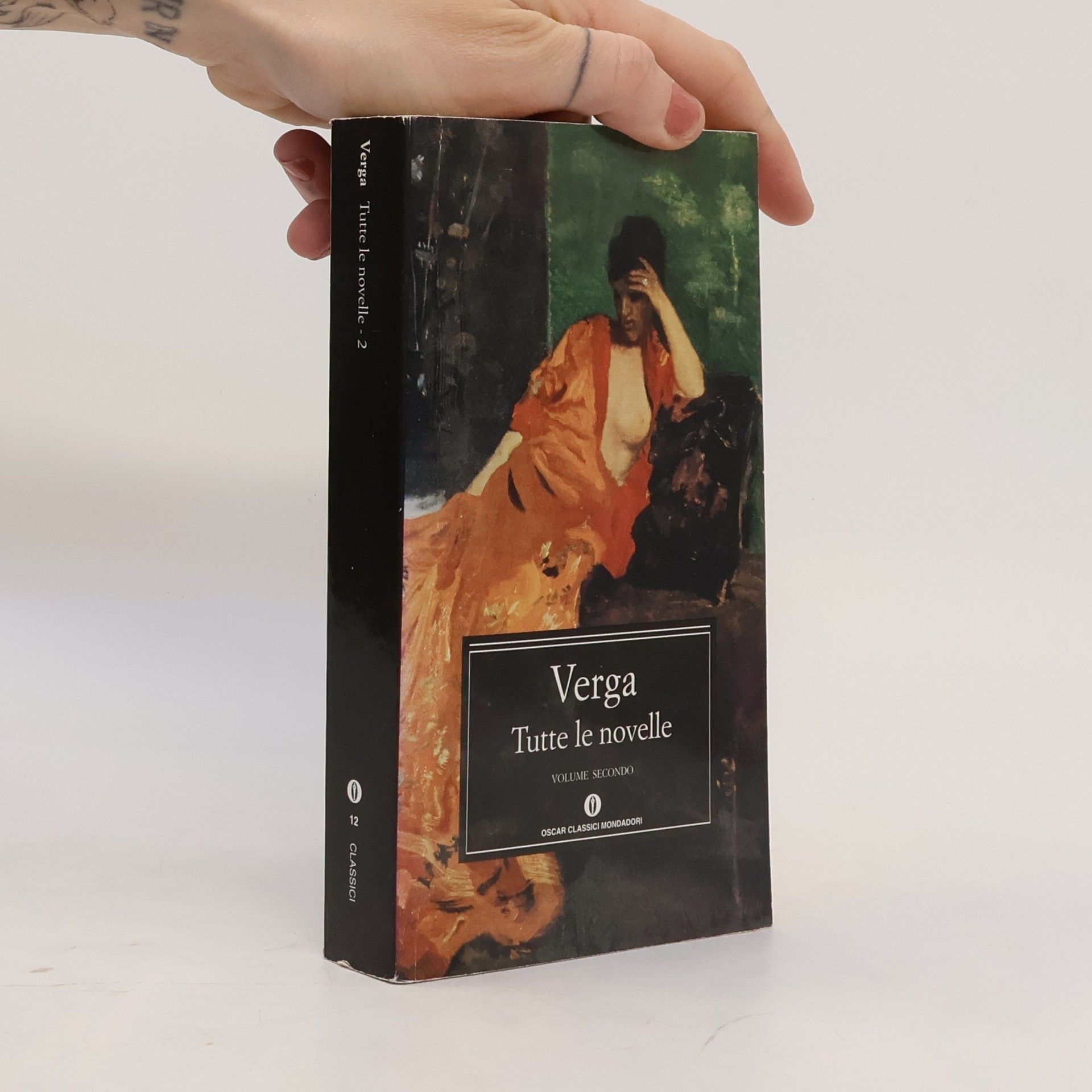Tutte le novelle. Volume Secondo
- 467pages
- 17 heures de lecture
Giovanni Verga fut un écrivain réaliste italien réputé pour ses représentations de la vie en Sicile. Son œuvre se caractérise par une observation aiguë de la vie rurale et de la psychologie des personnages, se concentrant souvent sur les valeurs traditionnelles et les hiérarchies sociales. Verga employait magistralement le dialogue pour développer ses personnages et transmettre des émotions authentiques, faisant résonner ses récits en profondeur auprès des lecteurs. Ses contributions constituent un pilier important du réalisme italien et de la représentation littéraire du peuple sicilien.







Ce recueil thématique de nouvelles offre aux adolescents et aux jeunes adultes un avant-goût de la littérature mondiale.
Giovanni Carmelo Verga, an influential Italian realist writer, is celebrated for his vivid portrayals of Sicilian life. His notable works include the iconic short story "Cavalleria rusticana" and the novel "I Malavoglia." Starting his literary journey in his teens, he published the historical novel "Amore e Patria" and later explored themes of social struggle and regional identity in "I carbonari della montagna" and "Sulle lagune." Verga's writing reflects his deep connection to Sicily and its culture, establishing him as a key figure in Italian literature.
On the face of things, Mastro Don Gesualdo is a success. Born a peasant but a man' with an eye for everything going', he becomes one of the richest men in Sicily, marrying an aristocrat with his daughter destined, in time, to wed a duke. But Gesualdo falls foul of the rigid class structure of mid-19th century Sicily. His title Mastro Don, 'Worker Gentleman', is ironic in itself. Peasants and gentry alike resent his extraordinary success. And when the pattern of society is threatened by revolt, Gesualdo is the rebels' first target.
Three generations of fishermen conduct an epic struggle against nature, fate, and society in this tale by realist writer Giovanni Verga. Written in 1881 and set in the Sicilian village of Aci Trezza during the 1860s, the novel recounts an impoverished family's attempts to pay off a crushing debt, to reclaim their lost boat and ancestral home, and to reunite their scattered clan.
Set in the rustic landscapes of Sicily, this novel offers a profound exploration of rural life, focusing on social class, poverty, and honor. It weaves a poignant family saga with tragicomic elements, showcasing the traditional values and customs of Sicilian society. Verga's vivid descriptions and rich characterizations immerse readers in the psychological struggles and aspirations of the protagonists. The story navigates complex family dynamics and societal expectations, revealing timeless insights into the human condition and the resilience of tradition amidst adversity.
Sicilian Stories From The Italian Of Giovanni Verga (1895)
The book is a facsimile reprint of an original antiquarian work, emphasizing its cultural significance. Acknowledging its age, it may contain imperfections like marks or flawed pages. The reprint aims to protect and preserve literary heritage by providing an affordable, high-quality edition that remains true to the original text.
First published in 1883, the stories in this collection are drawn from Giovanni Verga's childhood in Sicily, then reported as the poorest place in Europe. Verga's style is swift and economical, diving into narratives almost mid-breath, revealing a dark, tightly coiled core in each tale. His prose, deceptively simple, carries an ironic and bitter resolution that often catches readers off guard. Translator D. H. Lawrence likely resonated with Verga's depictions of Sicilian life, highlighting the class struggle between property owners and tenants, and the complex relationship between men and the land. Verga oscillates between affection and ironic detachment towards the superstitious, uneducated working poor, reserving his deepest pity for children and animals, who suffer the most in his narratives. The collection captures the wholeness of life, showcasing its spare exuberance and vibrant vitality. Critics praise the work for its artistic mastery, vividly bringing to life the Sicily of the 1860s, whether addressing the brutal aftermath of a failed revolution or the human comedy found even in mourning.
Reading sample: https: //easyoriginal.com/sample/EI3.pdf Innovative Reading Method: https: //easyoriginal.com/en/reading-method/ "La Lupa" ("The She-Wolf") is a short story by Giovanni Verga from the collection "Vita dei campi" ("The Life of the Fields"). Giovanni Verga was an Italian realist writer, best known for his depictions of life in his native Sicily. Unabridged original text. Bilingual book Italian-English. Fun with reading original versions, starting as a beginner from level A2 and people re-entering the learning process. Innovative Ilya Frank's Reading Method. Learning, refreshing and perfecting foreign languages by having fun reading. Efficient and effortless expansion of vocabulary thanks to the innovative reading method. It takes no effort to read the original version and no dictionary is required to understand every word precisely. In passing, you learn vocabulary and repeat/improve grammar. Thanks to the integrated audio books, listening comprehension is also trained.
Scritto nel 1869 e pubblicato in volume nel 1871, questo primo romanzo di Verga ha goduto e continua a godere di una straordinaria fortuna. Sebbene appartenga cronologicamente al primo periodo della produzione verghiana, esso se ne distacca sensibilmente sia nella struttura sia nei contenuti. Scritto in forma epistolare, è tratto da un'esperienza autobiografica. Le lettere che la giovane Maria - costretta dal padre alla vita del convento senza vocazione - scrive all'amica Marianna durante un breve soggiorno con la famiglia in campagna, testimoniano del suo turbamento di giovane novizia che al di fuori della vita monacale riscopre nuovi orizzonti, e soprattutto l'esistenza dell'amore che, osteggiato da tutti, crescerà in lei assumendo una tensione parossistica. Considerato a suo tempo una polemica denuncia della condizione femminile, questo romanzo, adattato per il cinema da Zeffirelli, è piuttosto un grande dramma intimo, sentimentale,umano, spinto fino all'eccesso.